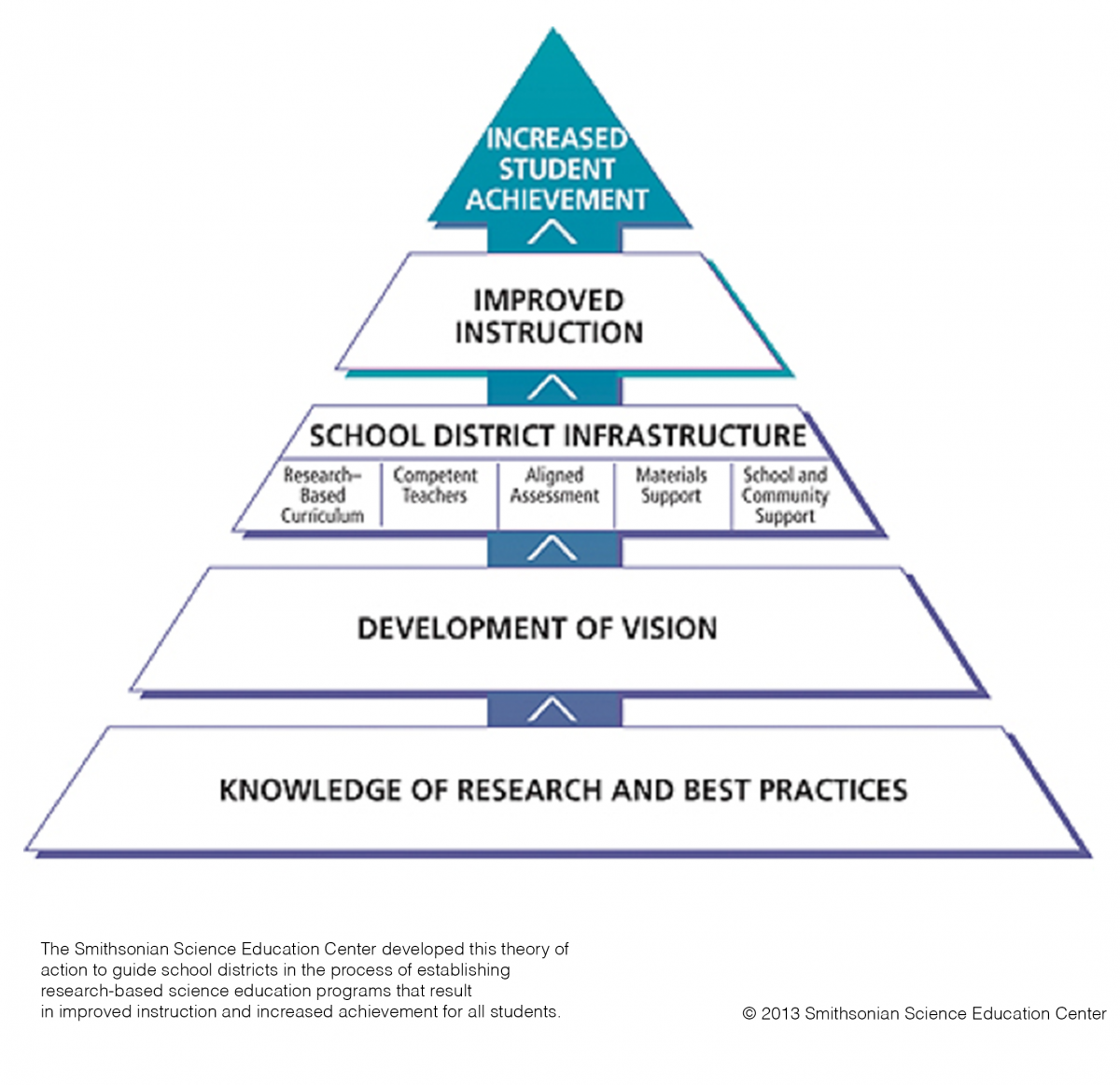The Need For Systemic Science Education Reform
Effective science education is, in itself, an innovation engine and more urgently needed now than ever before to address such major issues as climate change, national security, conservation of resources, disease epidemics and other health threats, trade, and more. In President Obama's words, "... we know that the nation that out-educates us today will out-compete us tomorrow. And I don't intend to have us out-educated" (Obama, 2009).
Unfortunately, decades of efforts to raise standards in science education have had only modest impacts in classrooms. During the past decade the amount of time that students in elementary and middle school spend studying science has significantly declined. This lack of commitment to science education is reflected in student performance on national tests, which increasingly attempt to measure not just content knowledge, but scientific thinking. On the 2005 U.S. National Assessment of Educational Progress (NAEP, 2005), the "Nation's Report Card," only 29% of fourth graders, 29% of 8th graders and 18% of 12th graders nationally scored "proficient" in science (NAEP, 2005).
Why hasn't science education reform been successful? The answer, we believe, is that our education system still operates in a vacuum, in isolation from its customers, and is primarily accountable only to government. We need to break the vacuum seal, open communication, and establish mutual accountabilities between all stakeholder groups, connecting and engaging the formal education system with the workplace and informal learning environments
With over 28 years of experience in improving science education in the United States and throughout the world, the Smithsonian Science Education Center (SSEC) is committed to helping educators at every level make this shift. Unlike most education institutions and organizations that focus exclusively on one or another aspect of reform, such as professional development, we employ a systems approach.
